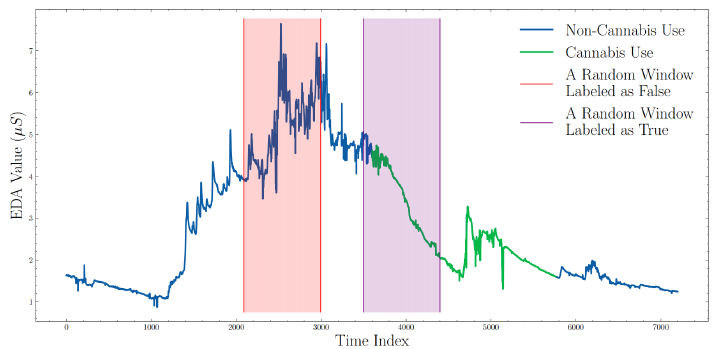Personalized Modeling and Detection of Moments of Cannabis Use in Free-Living Environments

Abstract
Coping with stress is reportedly one of the main reasons for chronic cannabis use. Developing a real-time system that offers cannabis users alternative methods to cope with stress is of interest in medical applications. To develop such a system, it is necessary to design a reliable mechanism for identifying cannabis use sessions in uncontrolled environments using physiological markers captured with wearable sensors. Therefore, the primary objective of this study is to design a system that can identify sessions of cannabis consumption by utilizing one of the most significant biomarkers of stress, Electrodermal Activity (EDA). We conducted a user study to collect physiological sensor data in real-life setting. We then model the cannabis use detection as a supervised learning problem and train a neural network model. To improve the performance of the proposed model for a specific subject, transfer learning techniques were used to retrain the base model on the new user data. Trained model achieved average f1-score of 0.68 and accuracy of 71.58% on the test data from Leave One Subject Out (LOSO) analysis. After applying transfer learning, the retrained model achieved average f1-score of 0.8 and accuracy of 83.61% when detecting the cannabis consumption period for the same subjects